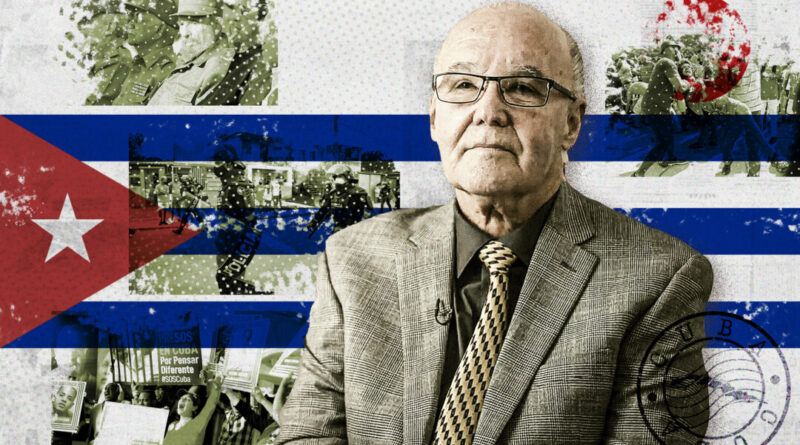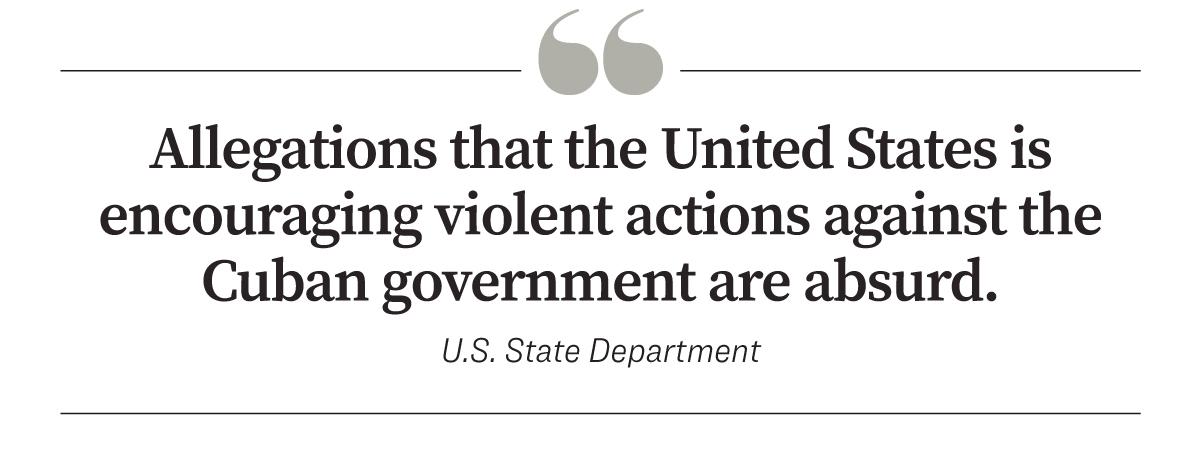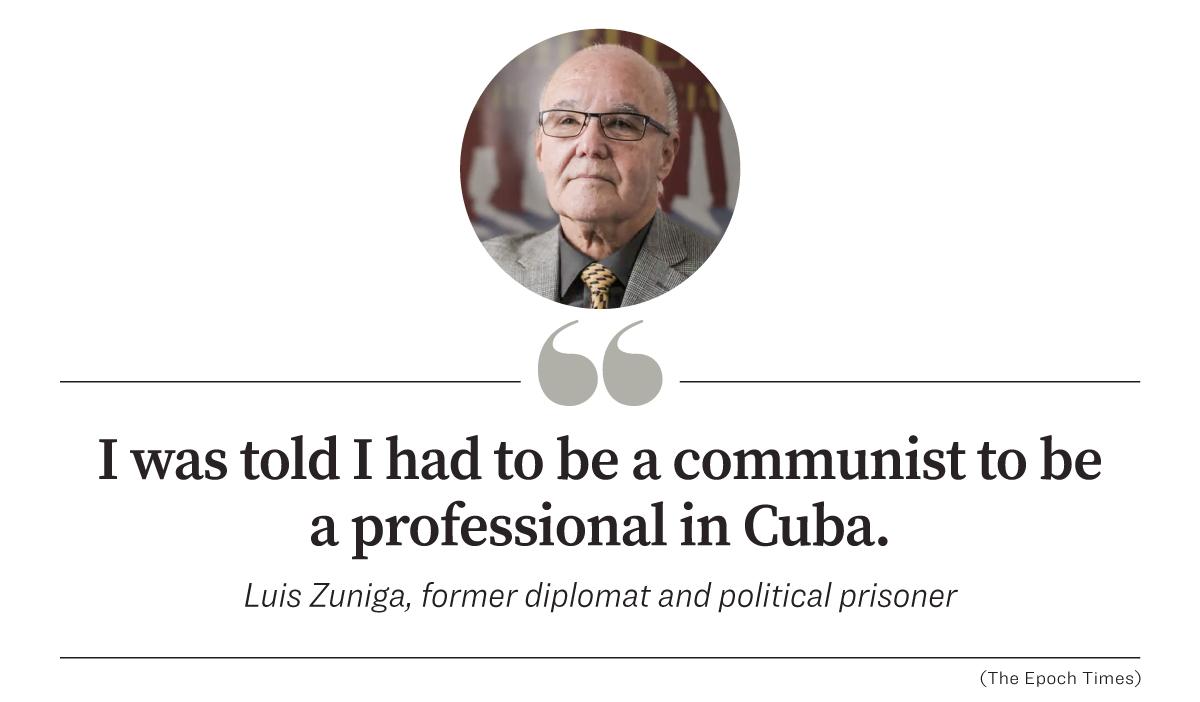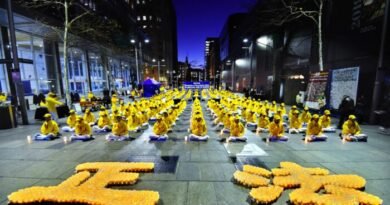‘They Face Threats of Assassination and Are Placed on Terror Lists: The Struggle of Cuban Americans’
Several of Cuba’s latest “terrorists” live in Miami.
Luis Zuniga, a former diplomat and political prisoner of the Castro regime, is one of 61 people listed as a “terrorist” by Cuba and accused of promoting, planning, organizing, financing, or supporting actions against the Cuban communist party.
The list was given to Interpol and government officials from different nations, including the United States in December 2023.
“I think the overt and covert campaign of threats and intimidation by the Cuban dictatorship against U.S. citizens of Cuban descent is very important,” Orlando Gutiérrez-Boronat told The Epoch Times. He is an author, cofounder, and spokesperson for the Cuban Democratic Directorate.
Mr. Boronot’s outspoken resistance to Cuba’s communist regime landed him a spot on the so-called “terrorist” list. He has been accused of trying to destabilize the Cuban government, along with threats of violence on more than one occasion.
“I think being included in that list … is definitely a threat.”
Some believe Cuba’s “terrorist” list and the newest round of menace toward exiles was launched because the Cuban government is on increasingly shaky ground at home.
Now, Cuban Americans in Miami are fearful as Castro devotees launch a new wave of threats and their homes are targeted.
Ramon Saul Sanchez is number 29 on the list. He said he’s been struggling for the freedom of Cuba for more than 40 years and asserts the terrorist labeling is just another communist party tactic to manipulate the narrative.
“They like to use those labels. In Cuba, if you’re not pro-Castro, you’re a worm. You’re a counter-revolutionary,” he told The Epoch Times. ”I’ve never been convicted of terrorism or even charged.”

People hold photographs of political prisoners being held in Cuban jails during a demonstration in support of the protesters in Cuba, in Miami on March 18, 2024. (Joe Raedle/Getty Images)
Activist and journalist Ninoska Perez wasn’t at all surprised to find her name on the list.
“I’ve always had the threats. They don’t like everyone to announce what they do wrong and their crimes,” Ms. Perez told The Epoch Times.
When she worked with the Cuban American National Foundation, Ms. Perez said she was targeted as an enemy of Fidel Castro’s regime early on. She called the organization Castro’s “biggest nightmare” at the time since it showcased what life on the island was actually like under communism.
Guerrero Cubano
Today, Ms. Perez works for a Miami radio station and has recently had a member of her family in the city surveilled at home by suspected members of the Cuban regime.
“It’s not only that they put you on a terrorist list, but they make public your home address.”
In March, the YouTube channel “Guerrero Cubano,” which translates to Cuban Warrior, posted a video that contained photos and addresses of the homes of exiles whose names appear on the “terrorist” list. Ms. Perez’s cousin lives in one of the homes.
She said it’s one thing to come after her since, as she put it, “I understand that what I do upsets a powerful dictatorship. I’m not complaining about that.”
Coming after her family, however, is much worse.
“It’s even worse because they’re subjecting her to this,” Ms. Perez said, adding that her cousin mentioned a couple of times that she’s seen strange cars parked near her house that don’t belong to any of the neighbors.
Compounding this, she feels there’s little that can be done to stop the threats. “What’s the police going to do? Patrol your house 24 hours? They simply can’t do that.”
In the Guerrero Cubano video, the narrator claims the Miami police have to be guarding homes now because people are scared. The same male narrator further states he will continue sharing information on the homes of Cuban exiles being targeted by the communist regime. He also claimed to know where the list members eat and what medications they take. The narrator even went as far as threatening to visit targeted exiles in the hospital.
The Miami Police Department didn’t respond to an Epoch Times request for comment on the recent threats against Cuban exiles.
“It’s scary for anybody,” Ms. Perez said.
It’s a vicious cycle that Cuban Americans know all too well. Threats and attacks from communist agents have come in waves over the decades.
She recalled a time in the 1990s when the Castro regime sent an assassin to Miami to kill a member of the Cuban American National Foundation. The target was afforded several days of police protection and the assassin failed. But, Ms. Perez said, the police can’t be everywhere all the time. If they intercept or deter one communist assassin or agitator, the Cuban regime can just send another.
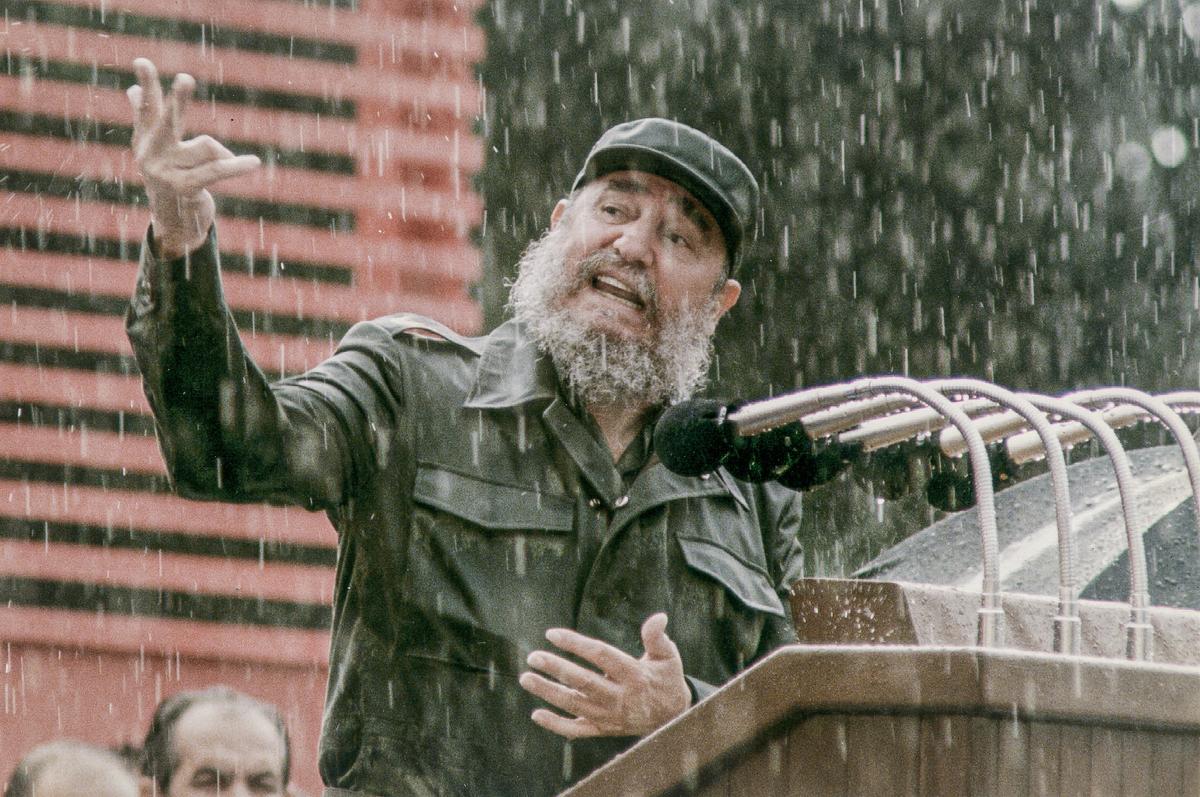
In the past several decades. Ms. Perez said the most notable lull in harassment or threats of attack from Cuba’s communist party was during the administration of President George H. W. Bush from 1989 to 1993.
The U.S. State Department said it’s “aware of the list released by the Cuban government.”
“These most recent allegations are the newest iteration of Cuban authorities’ efforts to belittle emigrants exercising their freedom of expression, including their freedom to criticize Cuba’s abysmal human rights record and relentless repression,” a department spokesperson told The Epoch Times.
“Allegations that the United States is encouraging violent actions against the Cuban government are absurd.”
The spokesperson further stated that the United States is focused on urging the Cuban government to release the approximately 1,000 unjustly detained political prisoners it holds and to allow its citizens to exercise the full range of human rights as outlined in the Universal Declaration of Human Rights, which Cuba signed.
Political Prisoner
Some Cuban Americans say if you’re lucky enough to survive what the regime does to you on the island, everything else is just details.
Mr. Zuniga didn’t seem overly concerned about being on the list. But, then again, he was a political prisoner who survived torture and several prison breaks before getting out.
Back when he was a young man at university in Cuba, Mr. Zuniga became a threat to the communist party simply by refusing to join them.
